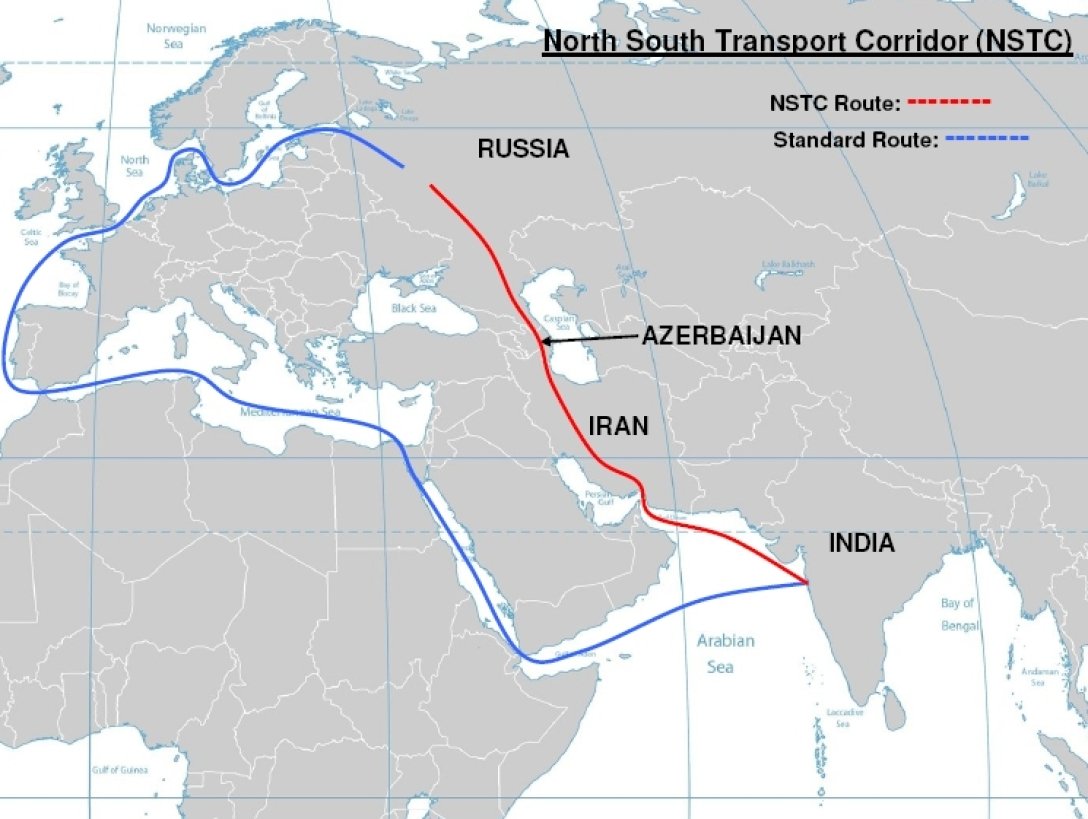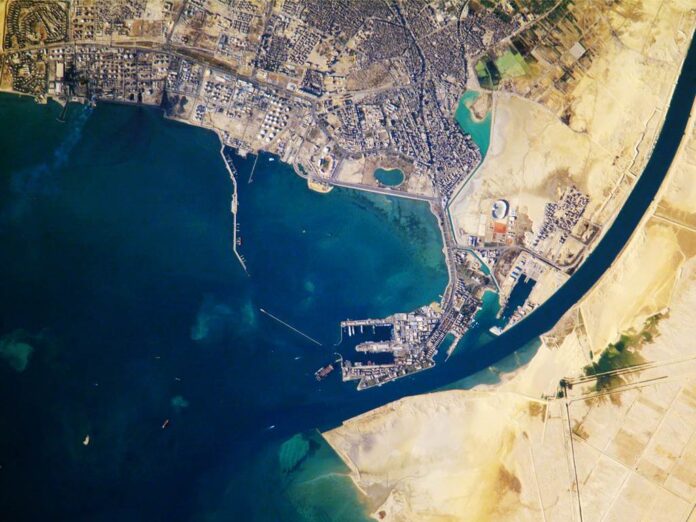Russia has planned a new transport route through Azerbaijan to India with Iran. If this project is being implemented, it will "abolish" the Suez channel for Russia and will become a real political tsunam for the West, warns by economist Alexei Kush.
About the new logistics corridor "North -South". Will it become an alternative to the Suez Canal for the Russian Federation and India
Immediately I note that I wrote about this project about this project in the context of risks for Ukraine, for a long time.
In general, I try to carefully analyze new logistics routes, because they determine both the economy and geopolitics.
So what is being said.
The North -South (NS) project is an international transport corridor (MTC) between Russia, India, Iran and neighboring countries (includes 11 countries).
It reduces the transportation time of goods how to compare with the route through the Suez Canal several times.
Last year, the agreement of the Russian Federation and Iran was signed on the construction of a railway section of the ends (city in Iran). The task of the project is to connect an existing network of railways of Iran, Azerbaijan and the Russian Federation (Moscow - Astrakhan - Mahachkala) into a single transport system.
The problem was that in Azerbaijan and Iran the width of the track was different: Russian track - 1435 mm and Iranian - 1520 mm.
To create a single railway system, it is necessary to build a section of 165 km long. The decision was made with two types of track.
Within this route, cargo from the Russian Federation will go to Azerbaijan, then - to Iran and from Iranian ports - by the sea to Mumbai (India).
The construction of the Astara-Railway will begin in 2024 and end in 2028. The estimate is over $ 2 billion: Iran builds, funds Azerbaijan and the Russian Federation.
Azerbaijan provided Iranian preferential loan for $ 500 million, and Russia plans to allocate $ 1.5 billion.
I analyzed the project myself in detail last year, and recently a major analytical article about it came out in NYT (author - Ivan Nechipurenko - who drove the whole route). The article provides data from trade turnover between the Russian Federation and the countries of the Global South, which will be included in this project:
“……… from 2021…. Russia's trade with China has increased by about 63 percent, to more than $ 240 billion in 2023. Trade with India is also increasing, reaching $ 65 billion, which is more than more than in 2021. amounted to $ 282 billion. "
The author of the article gives Putin's words that “… a new route will reduce the time of delivery of goods from Mumbai from St. Petersburg to only 10 days, as comparable to 30-45 days as it is now.
Russian officials call it a "breakthrough revolutionary project", which will compete with the Suez Canal. "
But the main thing is not even this - the article says that this route will be completely invulnerable to the influence of Western sanctions on trade with the Russian Federation.

You can see this by looking at the map: now Russian goods in India go through the Baltic Sea, the Strait of La-Channel past Britain and France, then through Gibraltar into the Mediterranean, then into the Suez Canal, from there to the Red Sea and, finally, to the Indian Ocean.
Most of the path passes by NATO, especially the vulnerable plot when leaving the Baltic Sea. It is a factor in the Danish Danctiva between the Scandinavian and Jutland Peninsula, which connect the Baltic Sea with the North (Straits of Little Belt, Greater Belt, Eresunn, Kattegat and Skageerrak).
Danish ducts are the main maritime route that connects the ports of the Baltic Sea with ports of the oceans. It is quite easy to block Russian oil tankers there.
In addition to the direct access to the Indian Ocean, there is another "subprobet" in the North-South route-a reanimation of the Baku-Erevan railway, dismantled in 1990. It connects the Russian Federation with Turkey, bypassing Georgia, which does not now pass Russian sub -goods.
In fact, it is about the same Zanhezur corridor, which is now forced to open Armenia (the connection of Azerbaijan with an exclusive in the form of Nakhichevan and Turkey).
In this context, it becomes absolutely understandable the sluggish assistance of Armenia from the Russian Federation in her war with Azerbaijan and the "reversal" of Armenia to the West (discussing the likelihood of joining the EU, NATO, suspension of Armenia membership in the CCE, etc.).
It is no longer Armenia, but Azerbaijan becomes a strategic ally of Russia in the Caucasus (based on logistics purposes).
On the other hand, full dependence on Baku also does not suit Moscow-so the Eastern Caspian route will also be implemented within the route "North-South": through Kazakhstan and Turkmenistan.
The key logistics hub in this "Caspian" transport and logistics model is Iran, and India turns into one of the largest trade partners of the Russian Federation.
In fact, a new geopolitical axis - Moscow - Tehran - Delhi - can be formed.
The Russian Federation, as a land empire aimed at control of land routes, while Britain and the United States (as Marine Empires) are aimed at control of the ducts.
Therefore, the Russian Federation builds railways in China and Iran, and the US and Britain strengthen the fleet.
A kind of struggle of the Talassates (Tallas - Sea) and Telluriates (Tellur - Earth).
Among the consequences of this project can be called:
- Significant transformation of the geopolitical niche of Armenia and the system of relations in the Caucasus in general (with increased Turkey and Azerbaijan).
- Iran's entry into global logistics chains.
- Close Economic Union of India and the Russian Federation.
- The "needlessness" for the Russian Federation and Iran of the Suez Canal, which can be completely blocked as a result of the actions of such Iranian "proxy" as a fever in Yemen.
Can the event stop this project. Yes, maybe.
For example, the Path of Spice from India to the EU, trade privileges for Indian goods in the European market and Western investments - in exchange for refusal to participate in the North -South project.
Blocking navigation from Iranian ports. The defeat of Hussites.
"Impact" on Azerbaijan in exchange for the opening of the Zemesur corridor (and here is already an impact on Armenia).
But in order to implement everything mentioned, the event needs to be "harnessed" on this topic. It should be systemic, long -term, structured and very multifaceted policy.
Such a master class was under the power of Kissinger, Reagan, even Bush (younger and older). Honestly, I do not see the adequate assessment of these risks and politicians in the EU and the US who could stop this obvious geopolitical tsunami.
But if you do not stop it - the consequences will be enormous.


